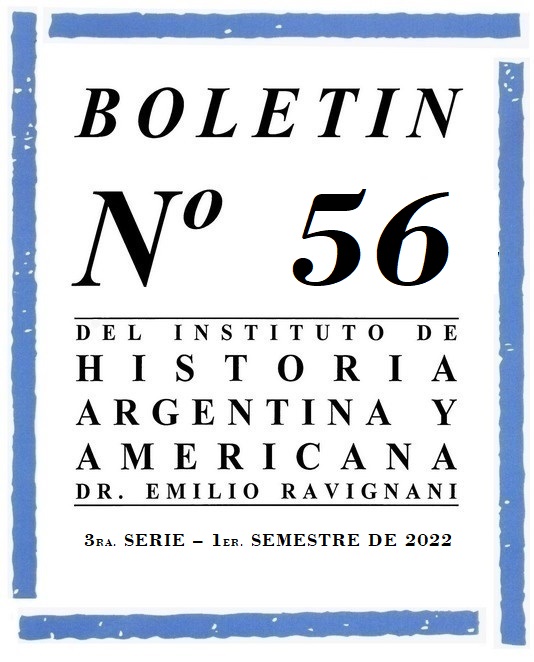Questions to Hilda Sabato
Abstract
The essay analyzes Hilda Sabato’s last book (Repúblicas del Nuevo Mundo. El experimento político latinoamericano del siglo XIX, Buenos Aires: Taurus/Penguin Random House, 2021) and poses two main questions. The first one points to the reasons why Spanish American independences have not been part of the narratives about the Atlantic democratic revolutions. Is this situation a consequence of the hegemonic trends in international historiographical production? The second refers to Hilda Sabato’s own experience in the formation of networks, circulations, and practices of the discipline leading to the theoretical and methodological renewal of political history, which has recently placed those independences as important topics within the broad history of political modernity.Downloads
References
Furet, F. (1978). Penser la Révolution Francaise. Paris: Editions Gallimard.
Galeano, E. (1971). Las Venas Abiertas de América Latina. México: Siglo XXI Editores.
Guerra, F. X. (1985), Le Mexique: De l ´Áncien Regime a la Révolution, Paris: L´Harmattan.
Guerra, F. X. (1992), Modernidad e independencias. Ensayos sobre las revoluciones hispánicas. Madrid: Mapfre.
Jaksic, I. (2007). Ven conmigo a la España lejana: los intelectuales norteamericanos ante el mundo hispano,1820-1880. Santiago: FCE.
Sabato, H. (2003). Francois Xavier Guerra (1942-2002). Prismas-Revista de Historia Intelectual, 7( 2), pp. 7-8.
Sabato, H. (2007), “Saberes y pasiones del historiador. Apuntes en primera persona” Marina Franco y Florencia Levin (comps.): Historia reciente. Perspectivas y desafíos para un campo en construcción. Buenos Aires: Paidós.
Sabato, H. (2018), Republics of the New World. The Revolutionary Political Experiment in 19th-Century Latin America. Princeton, New Jersey: Princeton University Press.
Varios Autores (1987-1994). The French Revolution and the Creation of Modern Political Culture. Oxford: Pergamon,Vol. I-IV.
Wiarda, W. J. (ed.) (1982). Politics and Social Change in Latin America. The Distinct Tradition, The University of Massachusetts Press, Second Revised Edition.
Copyright (c) 2021 Boletín del Instituto de Historia Argentina y Americana Dr. Emilio Ravignani

This work is licensed under a Creative Commons Attribution-NonCommercial 4.0 International License.
The copyright is transferred to the Boletín, but the authors may retrieve them and reproduce their work in other media or formats by means of a written request to the Editorial Committee. In such cases, the Boletín will be cited as the first publication of the work.
The works are licensed under a Creative Commons Attribution-NonCommercial 4.0 International License, which allows others to share the work with an acknowledgment of their authorship and initial publication in this journal.
Also, by written request to the Editorial Committee of the Boletín, the authors may separately establish additional agreements for the non-exclusive distribution of the version of the work published in this journal (for example, placing it in an institutional repository or publishing it in a book), with an acknowledgement of its initial publication here. No commercial uses are allowed.



















